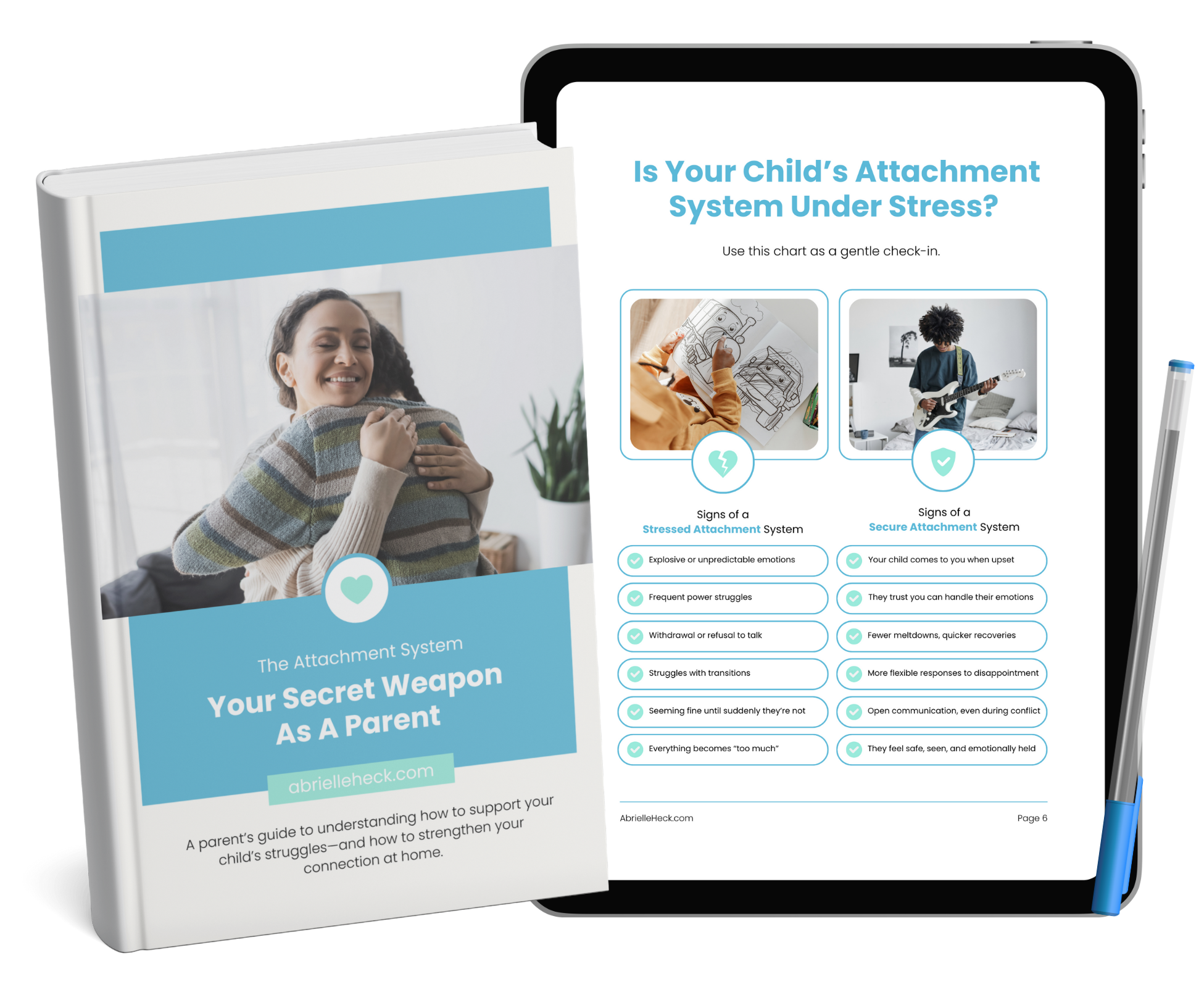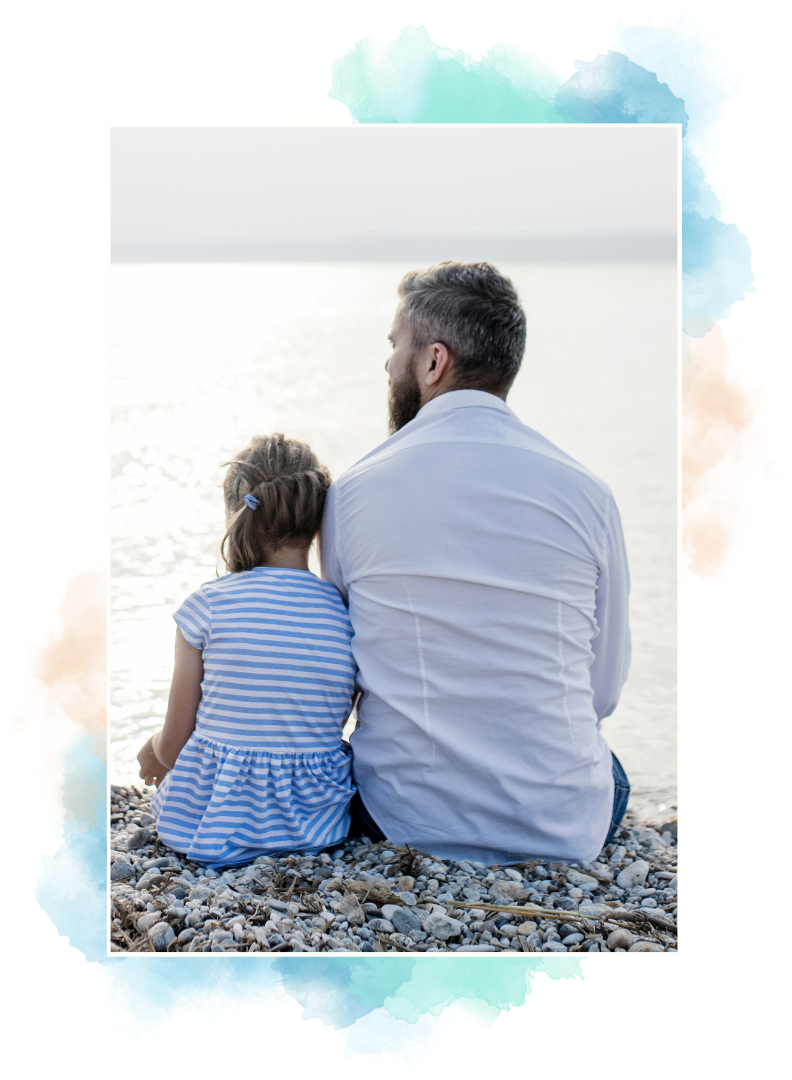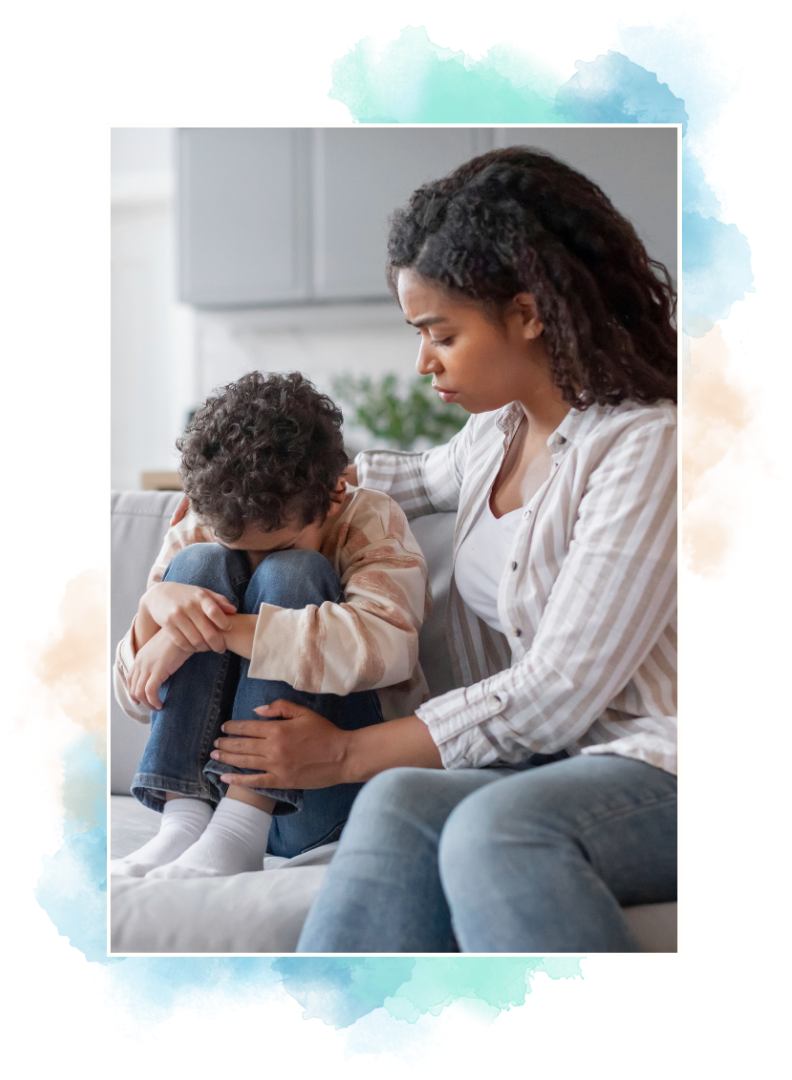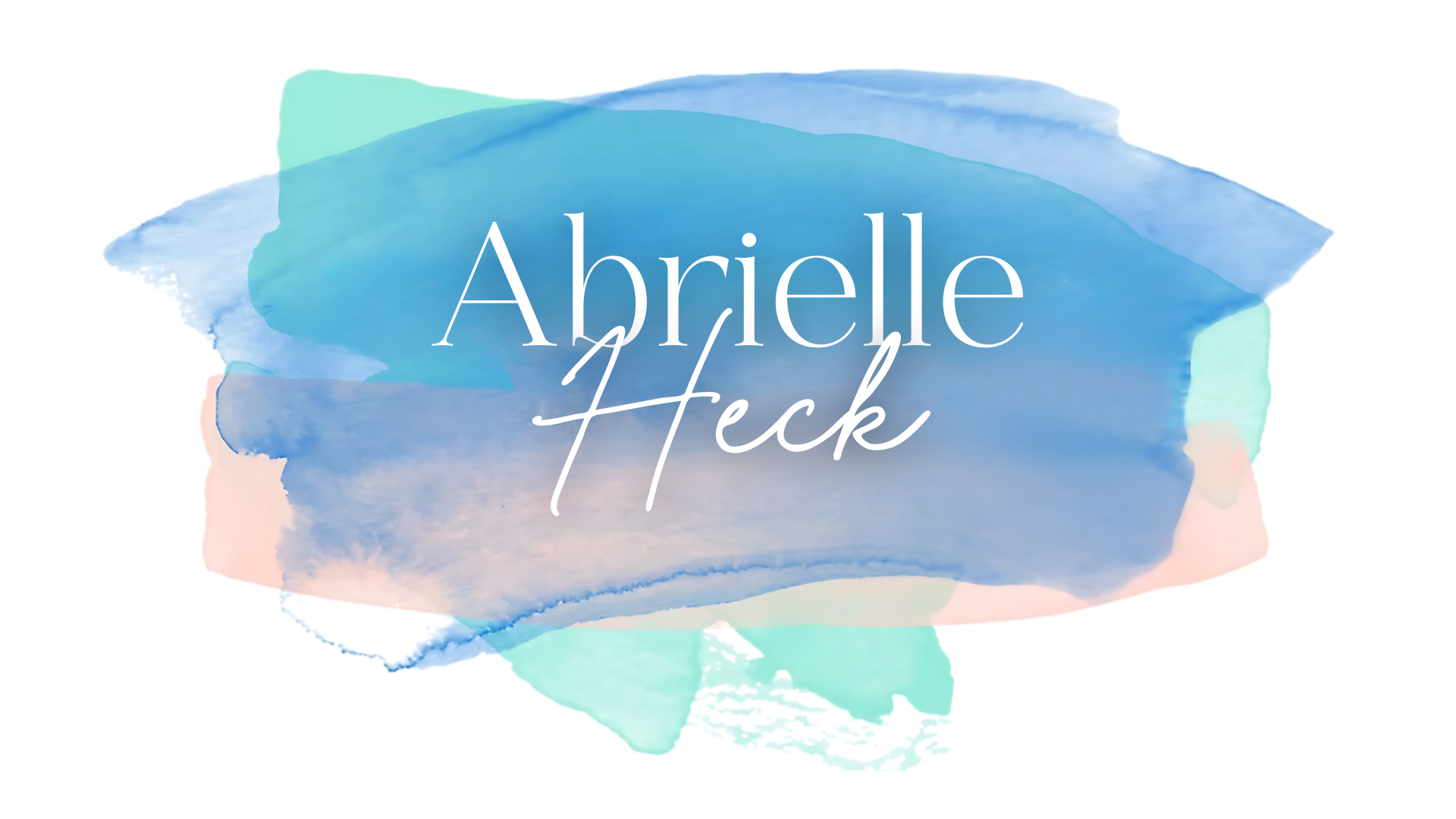Helping Kids, Teens & Parents Thrive Together Counselling That Strengthen Hearts & Homes in Calgary
Helping Kids, Teens & Parents Thrive
Together Counselling That Strengthen
Hearts & Homes in Calgary
Supportive therapy for children, adolescents, and families navigating anxiety, overwhelm, big emotions, and life transitions, with tools
that make a difference at home, not just in session.
Supportive therapy for children, adolescents, and families navigating
anxiety, overwhelm, big emotions, and life transitions, with tools
that make a difference at home, not just in session.
"I’ve made it my mission to help families reconnect, heal, and grow—by supporting children, teens, and parents through life’s hardest moments."
"I’ve made it my mission to help families reconnect,
heal, and grow—by supporting children, teens,
and parents through life’s hardest moments."
Whether your child is struggling with big emotions, anxiety, or change, therapy
can be the bridge back to calm, connection, and confidence—at home and beyond.
- Abby Heck, MSW, RCSW

Family Counselling for Kids, Teens & Parents in Calgary, Alberta
Family Counselling for
Kids, Teens & Parents in
Calgary, Alberta
Your child is struggling. And it’s breaking your heart.
Maybe they’re anxious all the time. Or constantly overwhelmed.
Maybe they’ve pulled away from you, or seem angry for no reason.
Maybe you’re getting calls from the school, watching their confidence disappear, or noticing they just don’t seem like themselves anymore. As a parent, there’s almost nothing harder than watching your child hurt—and not knowing how to help.
If you’re here, it means you’re already doing the most important thing: looking for support.
I’m Abrielle Heck, but you can call me Abby. I'm a registered clinical social worker, and I help children, teens, and families find their way through hard seasons—with tools that make a difference at home, not just in the therapy room.
You’re Not Doing This Wrong.
This Is Just Really Hard.
Parenting isn’t supposed to come with a manual—but that doesn’t mean you should be left guessing.
You may be feeling overwhelmed, confused, or even scared about what’s happening with your child.
You're not alone.
In my practice, I work with families every day who are navigating:
Big emotions and frequent meltdowns
Anxiety, worry, and school stress
Shutdowns, silence, or “walking on eggshells”
Emotional outbursts, sibling conflict, or behaviour changes
Struggles with friendships, identity, or confidence
Adjusting to a new diagnosis like ADHD or Autism
Divorce, loss, or big life transitions
Moments where something just… shifted, and your child isn’t quite the same
Whether it's one challenge or a tangled mix of many, there is a way through.
And it starts by getting to the root—not just managing the surface.

The Foundation We Build:
Resilience, Regulation & Relationship
Therapy isn't just about “coping.” It’s about helping your child thrive. Together, we build three foundational skills:
Therapy isn't just about “coping.” It’s about helping your child thrive.
Together, we build three foundational skills:

Relationship
To communicate, connect, and feel safe with the people who matter most

Regulation
To understand emotions and respond with calm, not chaos.

Resilience
To face life’s challenges with flexibility and strength.
These are the skills that help your child feel better now—and succeed later.
These are the skills that help your child feel
better now—and succeed later.
Your Secret Weapon As A Parent
The One Thing That Makes Every Other Parenting Strategy Work Better
If you’re stuck managing outbursts, shutdowns, or confusing behaviors—you don’t need more discipline strategies.
You need to understand the emotional root: the attachment system.
This free guide will show you why this is the missing piece in most parenting advice—and how repairing it unlocks everything else.
Understand what the attachment system is (in simple terms)
Learn how it shapes your child’s behavior, reactions, and connection with you
Discover small ways to strengthen it—starting today
Download the guide and stop chasing symptoms.
Start creating real, lasting change.


Your Secret Weapon As A Parent
The One Thing That Makes Every Other Parenting Strategy Work Better
If you’re stuck managing outbursts, shutdowns, or confusing behaviors—you don’t need more discipline strategies.
You need to understand the emotional root: the attachment system.
This free guide will show you why this is the missing piece in most parenting advice—and how repairing it unlocks everything else.
Understand what the attachment system is (in simple terms)
Learn how it shapes your child’s behavior, reactions, and connection with you
Discover small ways to strengthen it—starting today
Download the guide and stop chasing symptoms.
Start creating real, lasting change.

What’s Really Going On
Beneath the Surface?
Children often lack the words to tell us what’s wrong, BUT they show us with their emotional outbursts, meltdowns and shutdowns.
Our children’s behaviour has meaning.
And the bridge between those behaviours and the change you want to see is called the attachment system.
Research has shown that when the attachment system is strong, kids feel safe enough to reflect, build insight, and try new skills.
That’s what leads to real resilience.The attachment system is what helps a child feel safe, supported, and connected—especially when life feels uncertain, overwhelming, or out of control. It’s the emotional foundation of your relationship with them.
And when it’s strong, your child can:

Come to you with big feelings instead of hiding them

Trust that they’ll be met with empathy, not punishment.

Calm down more easily after being upset.

Feel secure even when things don’t go perfectly

Come to you with big feelings instead of hiding them

Trust that they’ll be met with empathy, not punishment.

Calm down more easily after being upset.

Feel secure even when things don’t go perfectly
Instead, They react.
They retreat. They spiral.
And parents are left feeling heartbroken, confused, and stuck in survival mode.
The good news?
The attachment system is something you can strengthen—through small, consistent moments of connection.
In therapy, we focus on repairing and rebuilding this foundation. Because when the attachment system is working… everything else gets easier.
Learn more about attachment and how it shapes behaviour.


What Therapy Can Look Like
For Your Child
I meet kids and teens where they’re at—with curiosity, compassion, and creativity.
Depending on your child’s age and needs, sessions may include:
Therapeutic games and play
Art and storytelling
Conversation and emotional check-ins
Tools for emotional regulation and coping
Skill-building to support confidence, connection, and calm
Every session is designed to help your child understand their feelings, build resilience, and strengthen the relationships that matter most—starting with yours.
And yes, your child will learn how to talk about what’s going on.
No, this isn’t just coloring or playtime.
Everything we do is intentional, trauma-informed, and backed by evidence and experience.
What Parents Can Expect
You won’t be left out of the process.
In fact, you’re one of the most important parts of it.
I keep parents involved—because I know that lasting change happens at home. That’s where we practice the skills. That’s where the healing and growth sticks.
As we work together, you’ll learn how to:
Better understand your child’s behaviours and emotions
Support them through anxiety, overwhelm, or conflict
Feel more confident responding to hard moments
Strengthen your connection—even in the middle of struggle
You're not expected to be the clinician.
You're not supposed to have all the answers.
But with the right guide, you can feel less alone—and more equipped to support your child through whatever comes next.
Want to Go Deeper?
Some parents come to me not only to support their child—but to grow as a parent themselves.
They’ve started noticing patterns, connecting dots from their own upbringing,
and asking bigger questions.If you’re ready to explore your own healing, and become
the strongest, most self-aware version of yourself—for your child and for you
Frequently Asked Questions
How do I know if my child needs therapy?
Children often show emotional struggles through behaviour—meltdowns, shutdowns, outbursts, or withdrawal. If you notice ongoing anxiety, difficulty with friendships, major changes in mood or sleep, or if your child no longer seems like themselves, it may be time to seek support. As a child therapist in Calgary can help you understand what’s going on beneath the surface and build a path forward.
What happens during a child or teen therapy session?
Sessions are tailored to your child’s developmental stage. For younger children, therapy may include play, art, and storytelling. For teens, it may involve talk therapy, emotion coaching, and identity exploration. Each session is designed to support emotional regulation, confidence, and connection—using strategies grounded in evidence and empathy.
Do parents participate in the therapy process?
Yes—parent involvement is key. Therapy with Abby is designed to equip you with tools and insight to support your child between sessions. You’ll be part of the process, learning how to respond to difficult moments, reduce power struggles, and rebuild connections at home.
What is attachment-based therapy and how does it help?
Attachment-based therapy focuses on strengthening the emotional bond between parent and child. When that bond feels safe and secure, children are better able to regulate their emotions, cope with anxiety, and develop trust. Strengthening the attachment system is at the heart of long-term resilience and emotional wellbeing.
How long does child or teen therapy usually take?
There’s no one-size-fits-all answer. Some children and teens benefit from short-term support, while others may need longer-term therapy to navigate deeper challenges or past trauma. Abby tailors every plan to your child’s pace—focusing on long-term growth, not quick fixes. Many families begin to notice shifts in emotional regulation and connection within the first few months.
Will my child have to talk about difficult things right away?
No. Abby works at your child’s pace and builds trust before diving into deeper conversations. For younger children, therapeutic play and storytelling are often used to gently explore emotions. For teens, establishing a sense of safety and autonomy is essential before addressing more vulnerable topics.
What is attachment-based therapy, and why does it matter?
Attachment-based therapy focuses on strengthening the emotional bond between child and caregiver. Research shows that when children feel safe and connected in their relationships, they’re better able to regulate emotions, cope with stress, and build resilience. Abby’s approach supports the whole family—not just the child—to create lasting change.
Can therapy help if my child has a diagnosis like ADHD or Autism?
Absolutely. Abby has experience supporting neurodivergent children with compassion and understanding. Therapy can help children with ADHD or Autism better understand their emotions, develop calming strategies, and navigate friendships or school stress. Parents are also supported with tools to respond more effectively and reduce conflict at home.
Do you offer family therapy in addition to individual sessions?
Yes. While Abby often works 1:1 with children or teens, she also offers family therapy sessions when helpful. These sessions focus on improving communication, reducing conflict, and restoring connection between family members. They can be especially helpful during transitions, after a crisis, or when patterns feel “stuck.”
Where is your office located and do you offer online sessions?
Abby is based in Calgary, Alberta, offering in-person sessions in a warm, child-friendly space. For teens and parents who prefer virtual support, online therapy is also available. All sessions—online or in-person—are designed to feel supportive, secure, and deeply human.
Land acknowledgement:
With gratitude, mutual respect, and reciprocity we honour and acknowledge Moh’kinsstis, and the traditional Treaty 7 territory and oral practices of the Blackfoot confederacy including the Siksika, Kainai, and Piikani Nations, as well as the Îyâxe Nakoda and Tsuut’ina Nations. This territory is also home to the Métis Nation of Alberta, Region 3. We respect all people who share, celebrate, and care for the Treaty 7 territory of southern Alberta and we honour the original caretakers of the land who remind us of the ongoing histories that precede us. We recognize our shared responsibilities going forward to help bring everyone together on this journey of Truth and Reconciliation.




